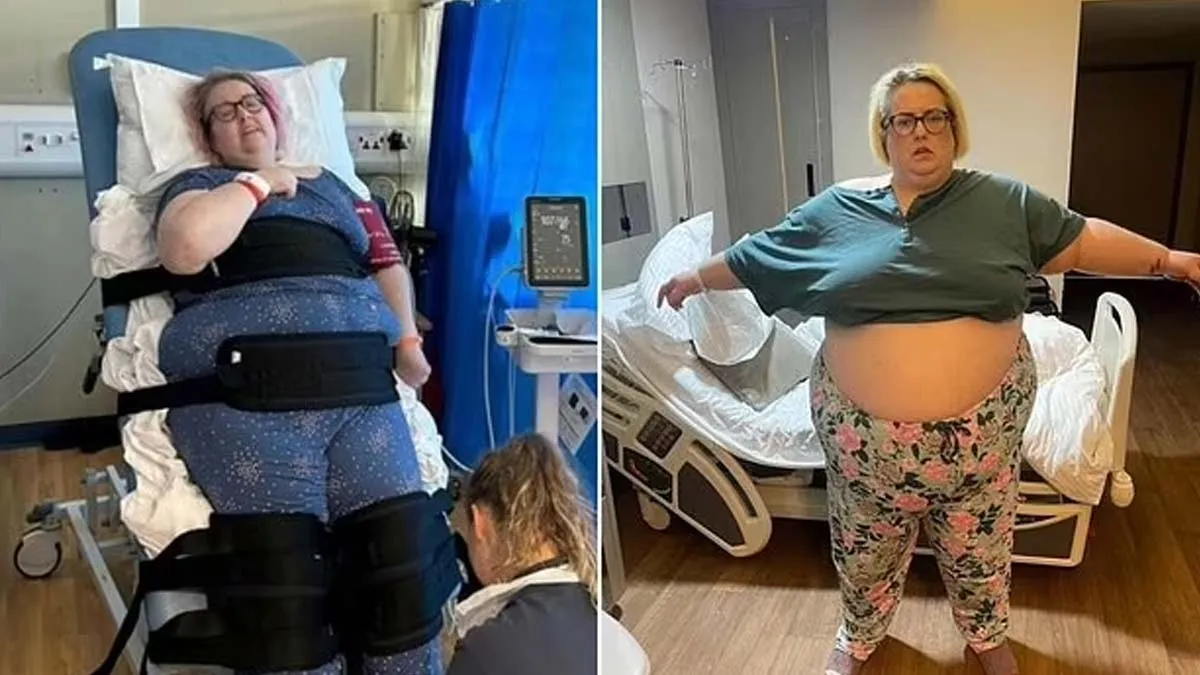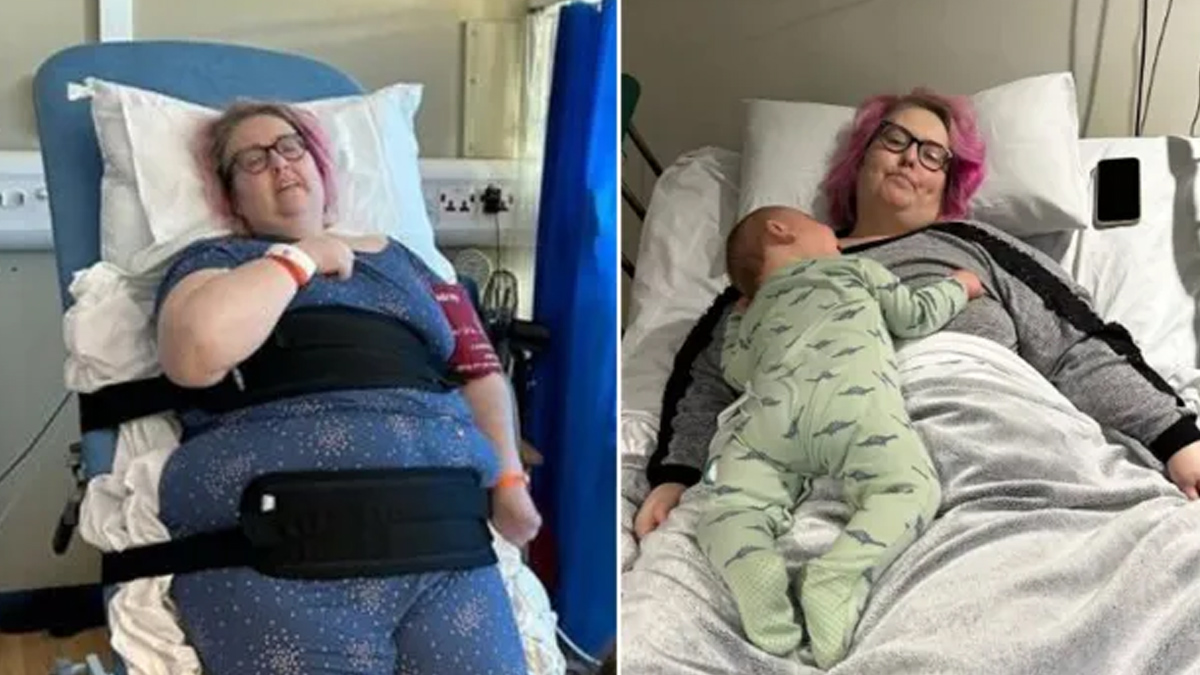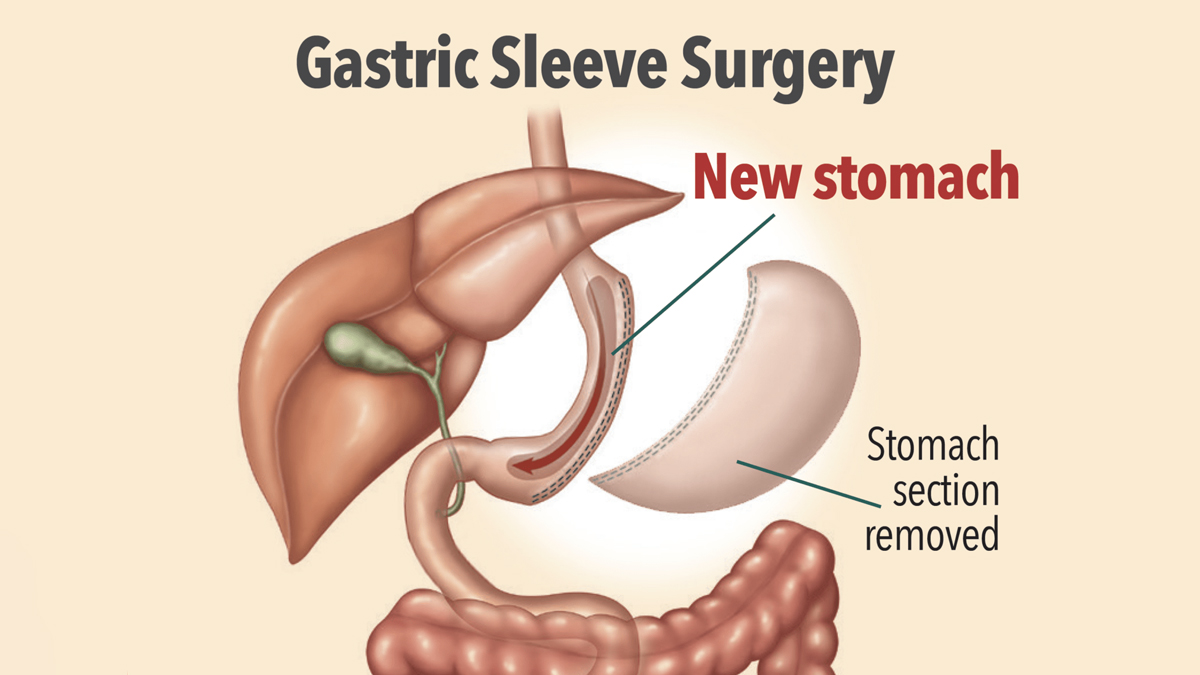
A British woman’s pursuit of better health ended in a traumatic medical ordeal after a weight loss surgery in Turkey went horribly wrong. The story of 42-year-old Danielle Peebles has not only drawn widespread attention but also reignited debates around the growing risks of medical tourism for budget bariatric procedures.
Table of Content:-
A Grandmother’s Desperate Decision
Danielle Peebles, a resident of the UK, was determined to lose weight so she could enjoy time with her newborn grandson. Weighing 28 stone (177 kg), she found herself facing a discouraging seven-year wait for bariatric surgery through the National Health Service (NHS).

Frustrated and desperate, she opted to travel to Turkey in June 2023 for a gastric sleeve procedure — a popular weight-loss surgery that reduces stomach size and limits food intake. Initially, everything seemed to go as planned. Danielle described the surgery as a success, feeling fine in the days following the procedure. But her relief was short-lived.
From Recovery to Paralysis
Upon returning home to the UK, Danielle began experiencing troubling symptoms. Despite losing a staggering 15 stone (95 kg), her health began to rapidly decline. She collapsed unexpectedly and was rushed to Salford Royal Hospital in Greater Manchester, where she was diagnosed with nutritional neuropathy — a rare but severe condition caused by critical vitamin deficiencies.
Also Read: World Health Day: PM Modi Calls For Obesity-Free India, Says Fitness Is Foundation Of Viksit Bharat
This diagnosis marked a terrifying new chapter in her life. Danielle found herself paralysed from the neck down, with excruciating nerve pain shooting through her feet. Doctors feared she might never walk again. “I was paralysed from the neck down, apart from the worst pain I’ve ever felt in my feet that flared up at the slightest touch,” Danielle recalled.
A Grueling Road to Recovery
Danielle remained in Salford Royal Hospital for five months, undergoing rigorous rehabilitation in an effort to restore her nerve function. Slowly but steadily, she began regaining sensation in her limbs. With persistence and the support of a dedicated medical team, she eventually left the hospital using crutches.

Reflecting on her recovery, she said, “It was devastating when I was told I might not walk again – it was a traumatic time for me and my family. To get where I am now, being a mum, a wife and a nanna, it’s the best thing. I owe Salford Royal a lot of gratitude.”
The Hidden Dangers of Cheap Surgery Abroad
Danielle’s case has brought to light the growing risks tied to low-cost medical procedures outside the UK. Experts warn that while countries like Turkey offer cheaper alternatives to private care in the UK, they may not always provide the same level of post-operative monitoring or nutritional guidance, especially crucial in procedures like gastric sleeve surgeries.
Also Read: Coca-Cola Recall Shocks Consumers: Thousands Of Cans Removed from U.S. Shelves
A reduced stomach capacity means patients can’t consume large amounts of food, often leading to vitamin and mineral deficiencies if not carefully managed. Lack of essential nutrients, particularly B vitamins, can trigger serious nerve damage, as seen in Danielle’s case.
Mounting Pressure on the NHS
Danielle’s story isn’t isolated. Each year, around 5,000 Britons travel abroad for obesity surgery. With limited follow-up care upon their return, many end up seeking emergency treatment from the NHS. This has led to added pressure on already strained hospital resources, with some patients requiring long-term care and rehabilitation.

Medical professionals are now calling for stricter regulations around overseas surgeries and better education for patients considering such procedures. While the appeal of affordable treatment abroad is undeniable, the long-term risks, both for the individual and the healthcare system, are proving increasingly hard to ignore. Danielle’s painful journey is a stark reminder: when it comes to health, the cheapest option isn’t always the safest one.
Also watch this video
How we keep this article up to date:
We work with experts and keep a close eye on the latest in health and wellness. Whenever there is a new research or helpful information, we update our articles with accurate and useful advice.
Current Version